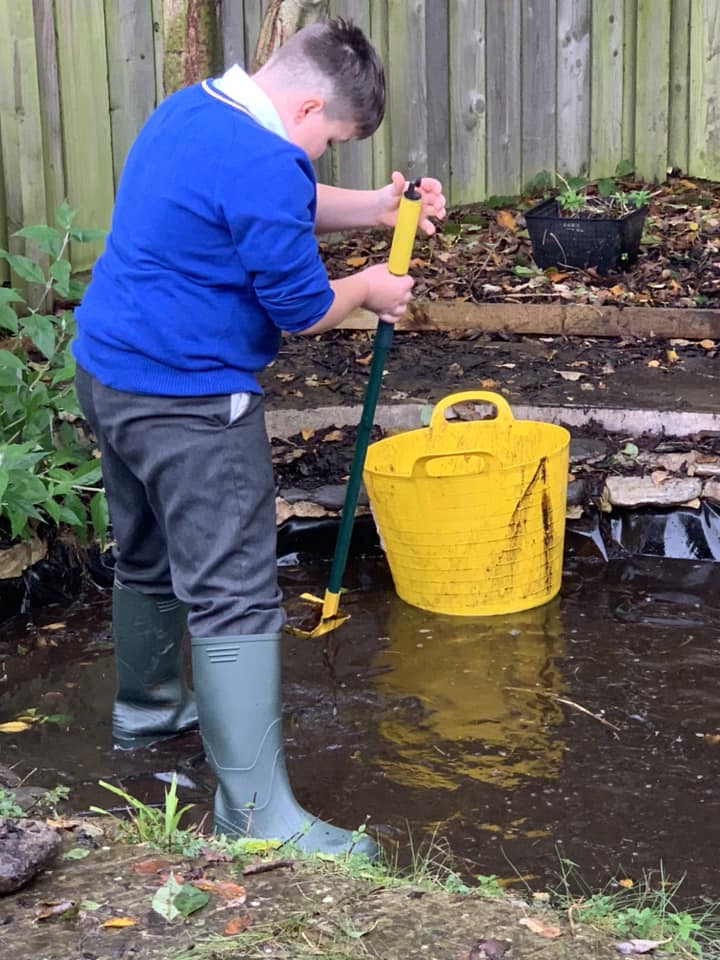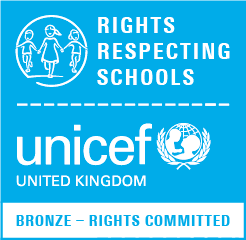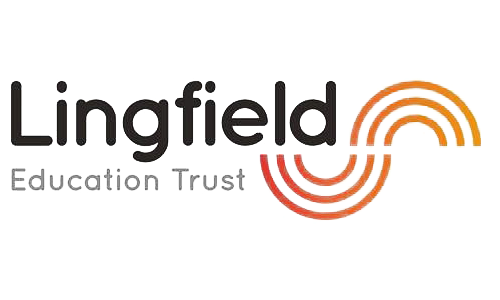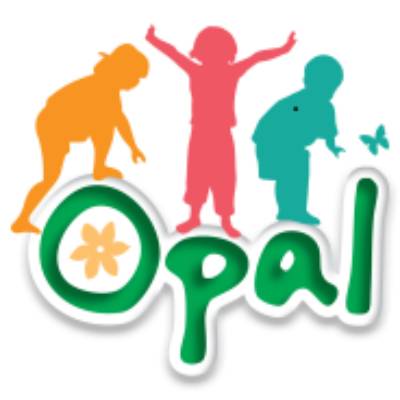
Outdoor
Play
And
Learning
Children at Marton Manor work hard – and because of this, we are committed to offering the opportunity to play hard! We have jusy started our OPAL journey which is helping us to developing high quality, varied and exciting playtimes!
OPAL is an award-winning, mentor supported school improvement programme that addresses all the areas that schools must plan for if they want to strategically and sustainably improve the quality of their play opportunities. OPAL is the only programme of its kind that has been independently proven to sustainably improve the quality of play in British primary schools.
We are committed to ensuring that quality play opportunities are available to all our children and believe that play is essential for physical, emotional, social, spiritual and intellectual development. We are determined that all children will encounter wonderful outdoor play and learning experiences everyday. Our School grounds have so much potential and pre-OPAL were barely being used, the children are so much happier playing in our most wonderful, naturally rich play environment.
From a first glance at our school, you can see that we are an OPAL school… Not only do our children have big smiles, but our lovely site is being developed with a range of play areas and opportunities in order to allow our children to develop their play behaviours, follow their interests and live our school values outside of the classroom.
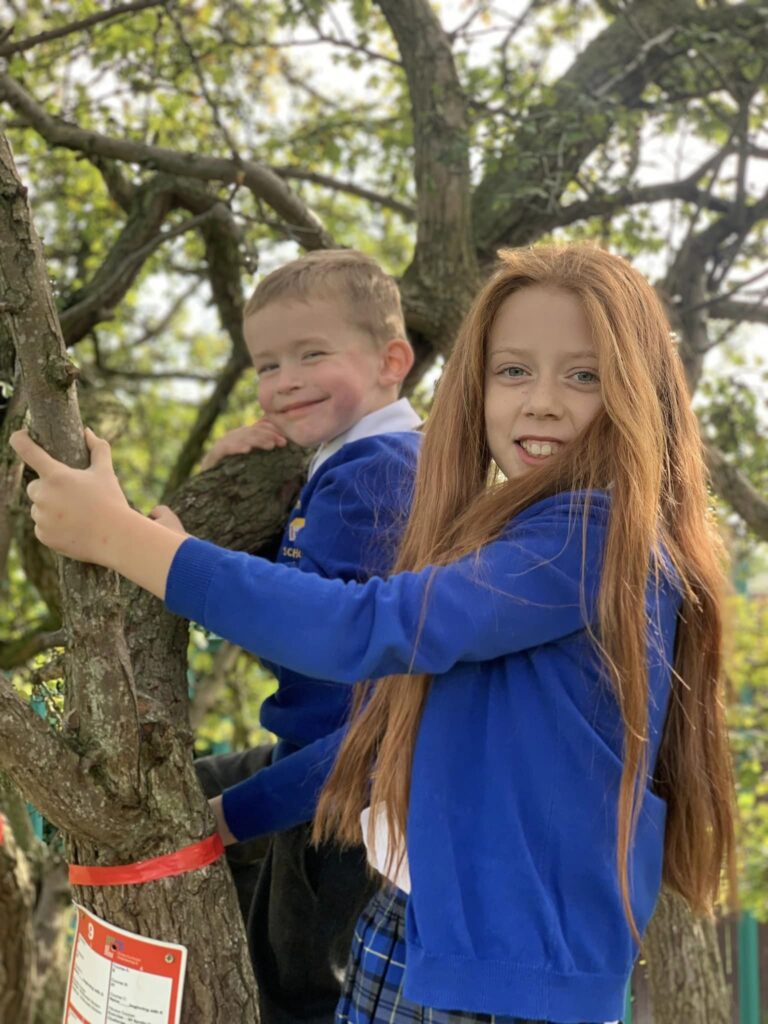
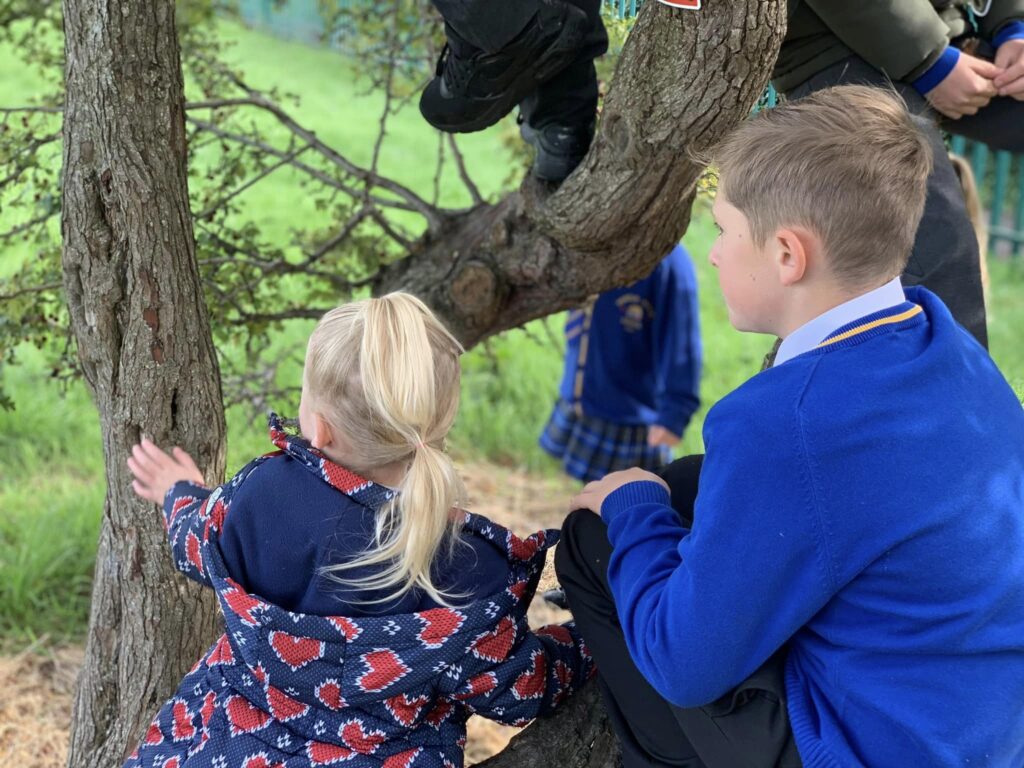
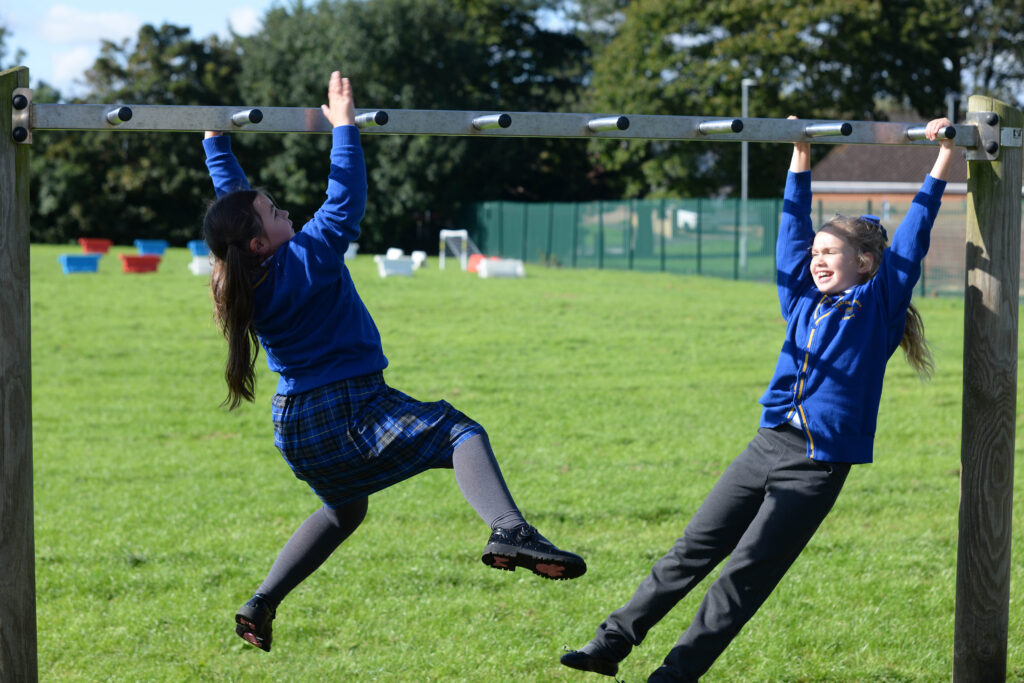
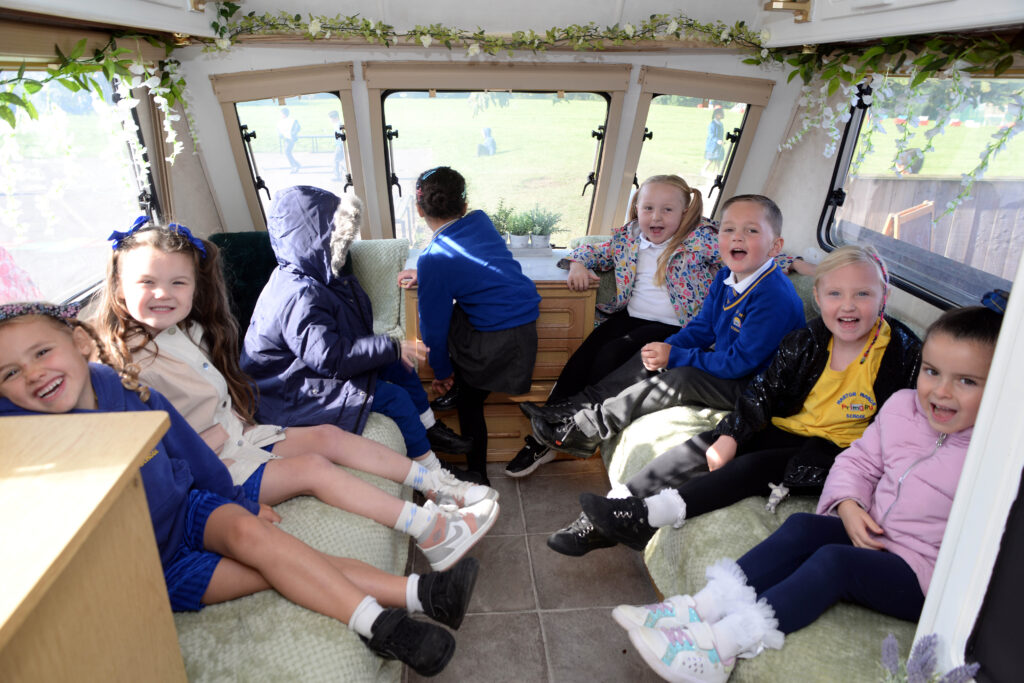
Whilst it might look like a den to an outsider what our children are experiencing are opportunities to develop resilience, team work, negotiation skills, perseverance, character building skills which are often difficult to teach in the classroom.
The play zones and social spaces we are developing are exciting, adventurous and fun. Play allows children to be creative, make decisions and manage risk. It provides many opportunities for them to develop their physical, social and communication skills and is invaluable to their emotional well-being.
At Marton Manor, we believe that all children need opportunities to play which allow them to explore, manipulate, experience and affect their environment. As a newly developing OPAL school, we value Outdoor Play and Learning. The school acknowledges the UN Charter on the Rights of the Child, especially Article 31, and supports the child’s right to play. We believe play provision should be:
Welcoming and accessible to every child, irrespective of gender, sexual orientation, economic or social circumstances, ethnic or cultural background or origin, or individual abilities.
The key areas of our school site which have been developed with OPAL principles in mind are:
- A chill out caravan
- A wildlife pond
- Tree climbing areas
- A dressing up zone
- Music and performance zones
- Quieter seating areas around the school site
- Quiet activity areas – for colouring and Lego activities
- A designated space for ball games
In the pipeline are the additional areas of…
- A loose parts zone… to flare budding designers’ imaginations
- Den building zones
- A large mud kitchen and digging area
- A class sized sand pit
- A ‘wheels’ zone
Meet the Team
Marton Manor OPAL Development Team
- Mrs Rehbohm – Headteacher
- Mrs Calboutin – Curricular lead
- Mrs Baggett – Play Co-ordinator
- Ruth Parker – Governor
- Sean Bowes, Paula Bowes, Sarah Balmer – Parent /PTA
- Pauline Pennock – Health and safety
- Dale – Grounds Manager
Play Team
- Miss Michiels
- Mrs Graham
- Mrs Trapletti
- Mrs Shepherd
- Mary Bennett
- Mrs Burdess
Our OPAL Buddies
Alfie, Alice, Aidan, Ava, Emilia, Emily, Finn, George, Jamie, Sara, Yayha.
The benefits of play
1. Children learn through their play.
Don’t underestimate the value of play. Children learn and develop:
- cognitive skills – like math and problem solving in a pretend grocery store
- physical abilities – like balancing blocks and running on the playground
- new vocabulary – like the words they need to play with toy dinosaurs
- social skills – like playing together in a pretend car wash
- literacy skills – like creating a menu for a pretend restaurant
2. Play is healthy.
Play helps children grow strong and healthy. It also counteracts obesity issues facing many children today.
3. Play reduces stress.
Play helps your children grow emotionally. It is joyful and provides an outlet for anxiety and stress.
4. Play is more than meets the eye.
Play is simple and complex. There are many types of play: symbolic, sociodramatic, functional, and games with rules-–to name just a few. Researchers study play’s many aspects: how children learn through play, how outdoor play impacts children’s health, the effects of screen time on play, to the need for recess in the school day.
5. Make time for play.
As parents, you are the biggest supporters of your children’s learning. You can make sure they have as much time to play as possible during the day to promote cognitive, language, physical, social, and emotional development.
6. Play and learning go hand-in-hand.
They are not separate activities. They are intertwined. Think about them as a science lecture with a lab. Play is the child’s lab.
7. Play outside.
Remember your own outdoor experiences of building forts, playing on the beach, sledding in the winter, or playing with other children in the neighbourhood. Make sure your children create outdoor memories too.
8. There’s a lot to learn about play.
There’s a lot written on children and play. Here are some NAEYC articles and books about play. David Elkind’s The Power of Play (Da Capo, 2007 reprint) is also a great resource.
9. Trust your own playful instincts.
Remember as a child how play just came naturally? Give your children time for play and see all that they are capable of when given the opportunity.
10. Play is a child’s context for learning.
Children practice and reinforce their learning in multiple areas during play. It gives them a place and a time for learning that cannot be achieved through completing a worksheet. For example, in playing restaurant, children write and draw menus, set prices, take orders, and make out checks. Play provides rich learning opportunities and leads to children’s success and self-esteem.
How Can You Help?
Play is not messing about. It is the process evolution has come up with to enable children to learn all of the things that cannot be taught, while also feeling like it is fun. There are certain things children must have in order to be able to play. These include:
- Having clothes that you can play in
- Having things to play with
- Having a certain amount of freedom
As the school improves play opportunities for your children, you may find the school is asking you for resources and is making changes about how the children use the school grounds. They may use more of the grounds, for more of the year. Your children may get a bit messier, be exposed to more challenges and have greater freedoms to play where, with whom and how they like. The experiences the school is fostering are essential for children’s physical and mental well-being and healthy and in line with all current good practice advice on health safety, well-being and development.
The 16 types of play
There are acknowledged to be a number of different play types (around 16) which provide playworkers, managers and trainers with a common language for describing play. They are listed below, in no particular order
Symbolic Play – play which allows control, gradual exploration and increased understanding without the risk of being out of depth e.g. using a piece of wood to symbolise a person or an object or a piece of string to symbolise a wedding ring.
Rough and Tumble Play – close encounter play which is less to do with fighting and more to do with touching, tickling, gauging relative strength. Discovering physical flexibility and the exhilaration of display. This type of play allows children to participate in physical contact that doesn’t involve or result in someone being hurt. This type of play can use up lots of energy.
Socio-dramatic Play – the enactment of real and potential experiences of an intense personal, social, domestic or interpersonal nature e.g. playing at house, going to the shops, being mothers and fathers, organising a meal or even having a row.
Social Play – play during which the rules and criteria for social engagement and interaction can be revealed, explored and amended e.g. any social or interactive situation which contains an expectation on all parties that they will abide by the rules or protocols i.e. games, conversations, making something together.
Creative Play – play which allows a new response, the transformation of information, awareness of new connections, with an element of surprise. Allows children to design, explore, try out new ideas and use their imagination. They can use lots of different tools, props, equipment. It can have a beginning and an end, texture and smell e.g. enjoying creation with a range of materials and tools for its own sake. Self-expression through any medium, making things, changing things.
Communication Play – play using words, nuances or gestures e.g. mime / charades, jokes, play acting, mickey taking, singing, whispering, pointing, debate, street slang, poetry, text messages, talking on mobiles / emails/ internet, skipping games, group and ball games.
Dramatic Play – play which dramatises events in which the child is not a direct participator e.g. presentation of a TV show, an event on the street, a religious or festive event, even a funeral.
Locomotor Play – movement in any or every direction for its own sake e.g. chase, tag, hide and seek, tree climbing.
Deep Play – play which allows the child to encounter risky or even potentially life-threatening experiences, to develop survival skills and conquer fear e.g. light fires with matches, make weapons, conquer fear such as heights, snakes, and creepy crawlies. Some find strength they never knew they had to climb obstacles, lift large objects etc e.g. leaping onto an aerial runway, riding a bike on a parapet, balancing on a high beam, roller skating, assault course, high jump.
Exploratory Play – play to access factual information consisting of manipulative behaviours such as handling, throwing, banging or mouthing objects e.g. engaging with an object or area and, either by manipulation or movement, assessing its properties, possibilities and content, such as stacking bricks.
Fantasy Play –This is the make-believe world of children. This type of play is where the child’s imagination gets to run wild. Play, which rearranges the world in the child’s way, a way that is unlikely to occur e.g. playing at being a pilot flying around the world, pretend to be various characters/people, be where ever they want to be, drive a car, become be six feet nothing tall or as tiny as they want to be the list is endless as is a child’s imagination.
Imaginative Play – play where the conventional rules, which govern the physical world, do not apply e.g. imagining you are or pretending to be a tree or ship, or patting a dog which isn’t there.
Mastery Play – control of the physical and affective ingredients of the environments e.g. digging holes, changing the course of streams, constructing shelters, building fires.
Object Play – play which uses infinite and interesting sequences of hand-eye manipulations and movements e.g. examination and novel use of any object e.g. cloth, paintbrush, cup.
Role Play – play exploring ways of being, although not normally of an intense personal, social, domestic or interpersonal nature e.g. brushing with a broom, dialling with a telephone, driving a car.
Recapitulative Play – play that allows the child to explore ancestry, history, rituals, stories, rhymes, fire and darkness. Enables children to access play of earlier human evolutionary stages.
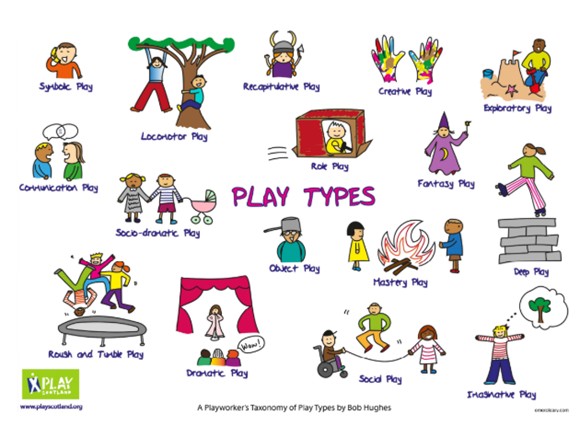
Our Outdoor Play and Learn Areas
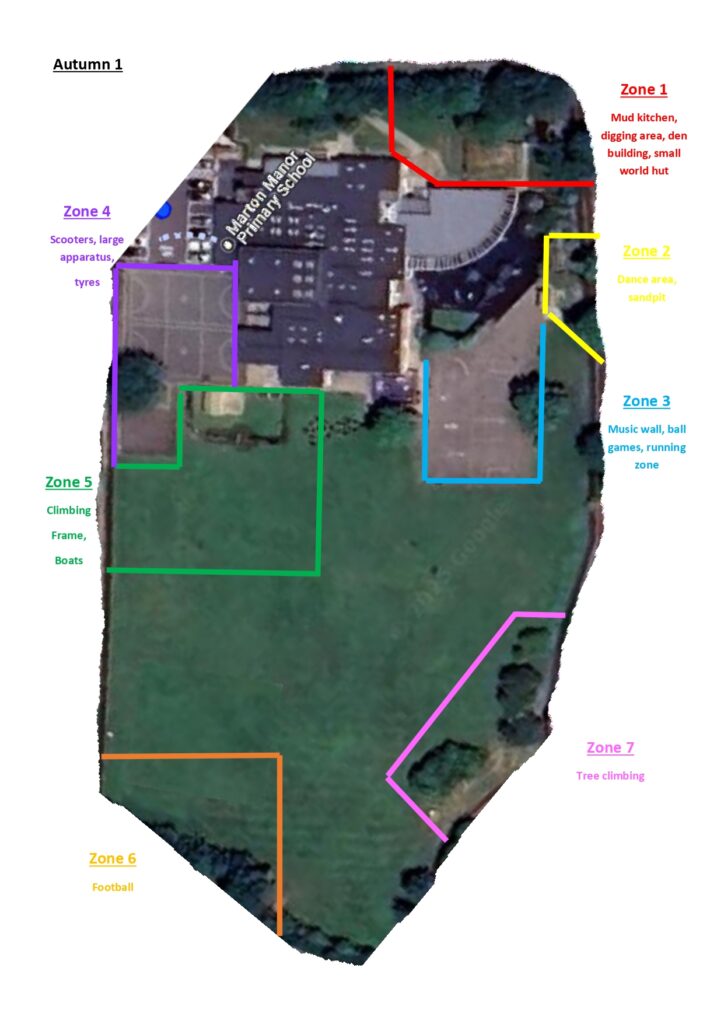
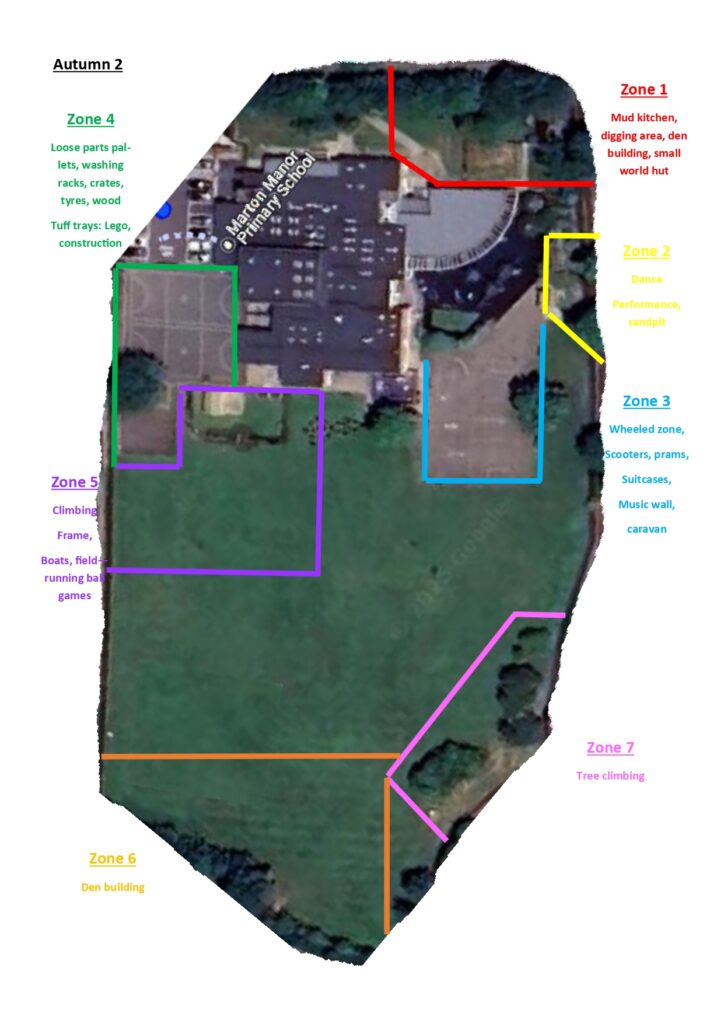
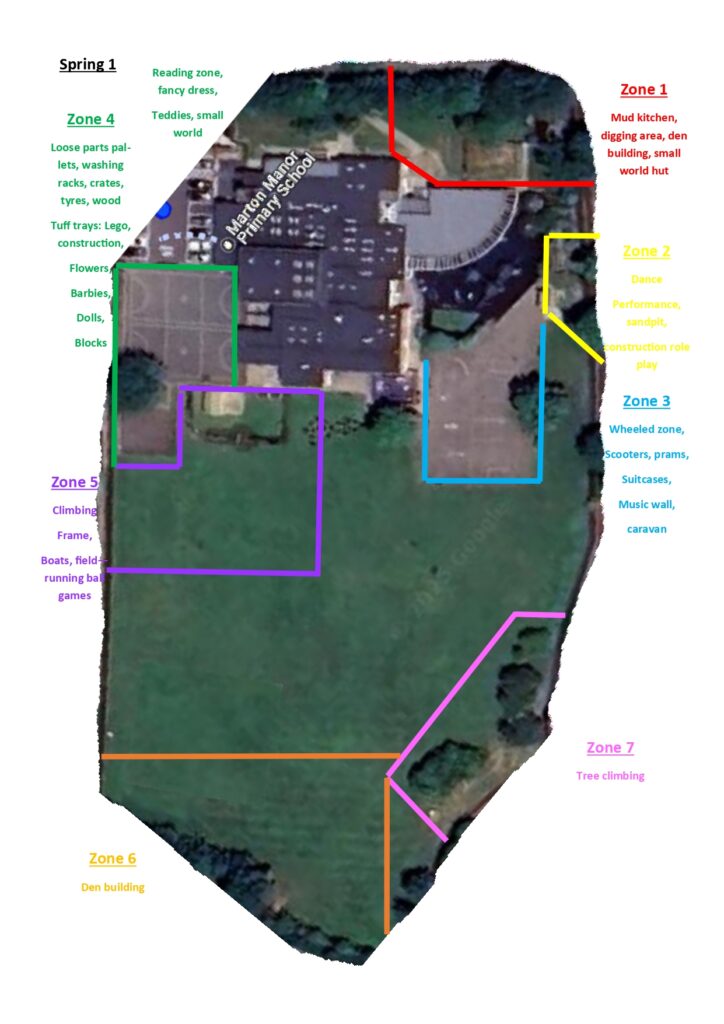
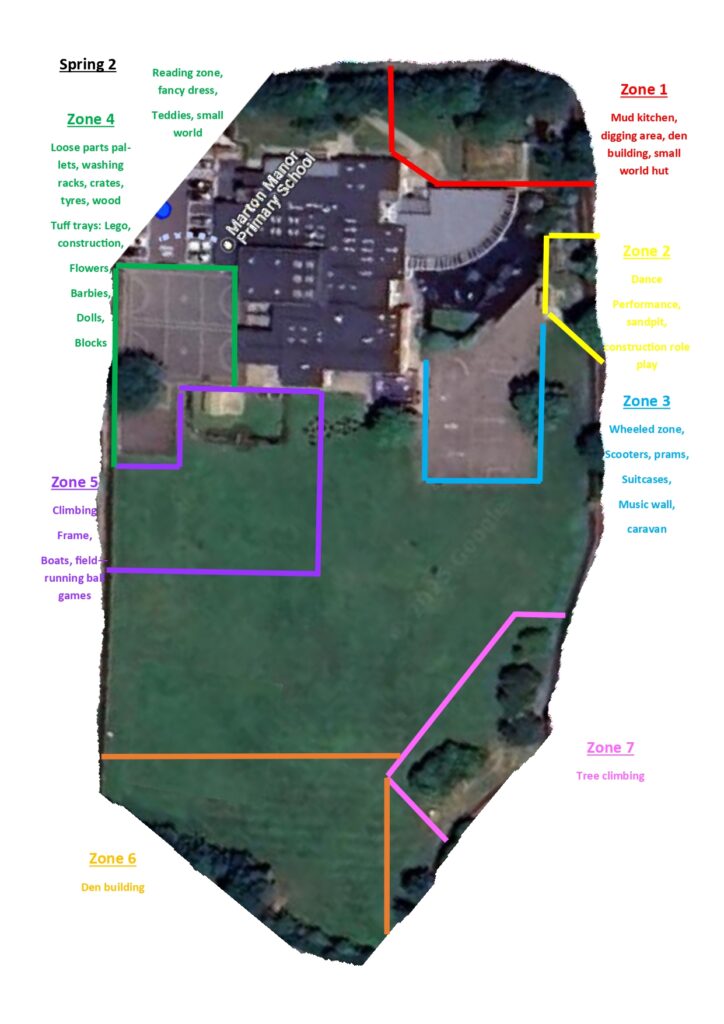
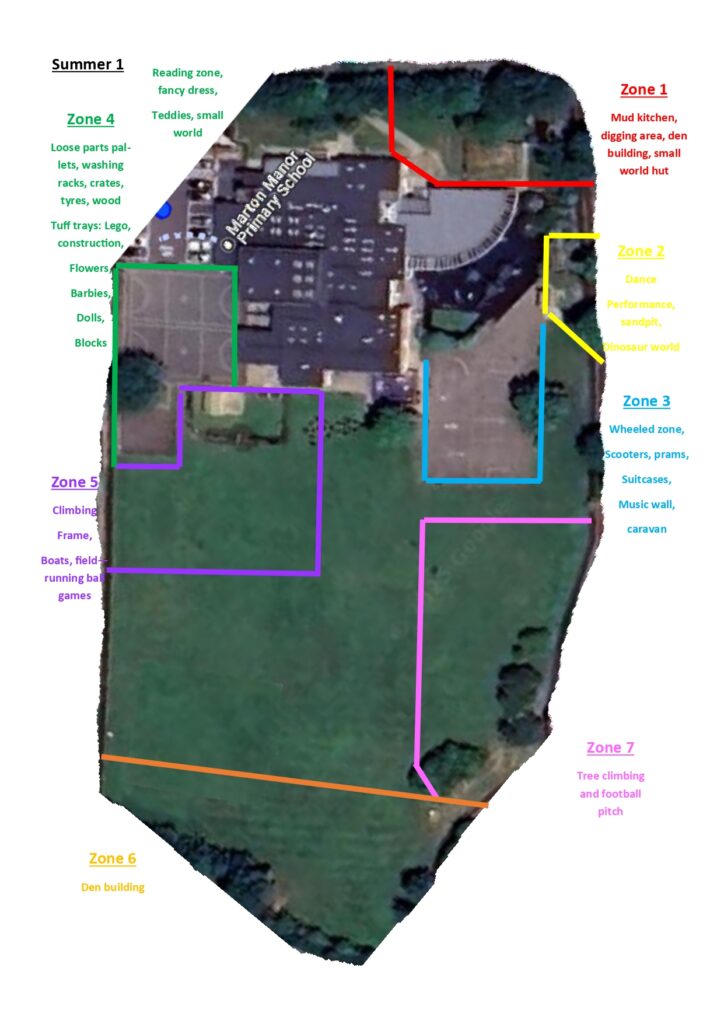
The OPAL programme rationale is that “…better, more active and creative playtimes can mean happier and healthier children, and having happier, healthier, more active children usually results in a more positive attitude to learning in school, with more effective classroom lessons, less staff time spent resolving unnecessary behavioural problems, fewer playtime accidents, happier staff and a healthier attitude to life”.
Grown ups – we are always looking for additional resources for our OPAL playtimes! Please send in to school any old pans, pots, gardening tools (no garden forks), dressing up items, tyres, planks, crates, tarpaulins…. if a child could play with it – we’ll take it!
For more information about the OPAL Programme, visit https://outdoorplayandlearning.org.uk
